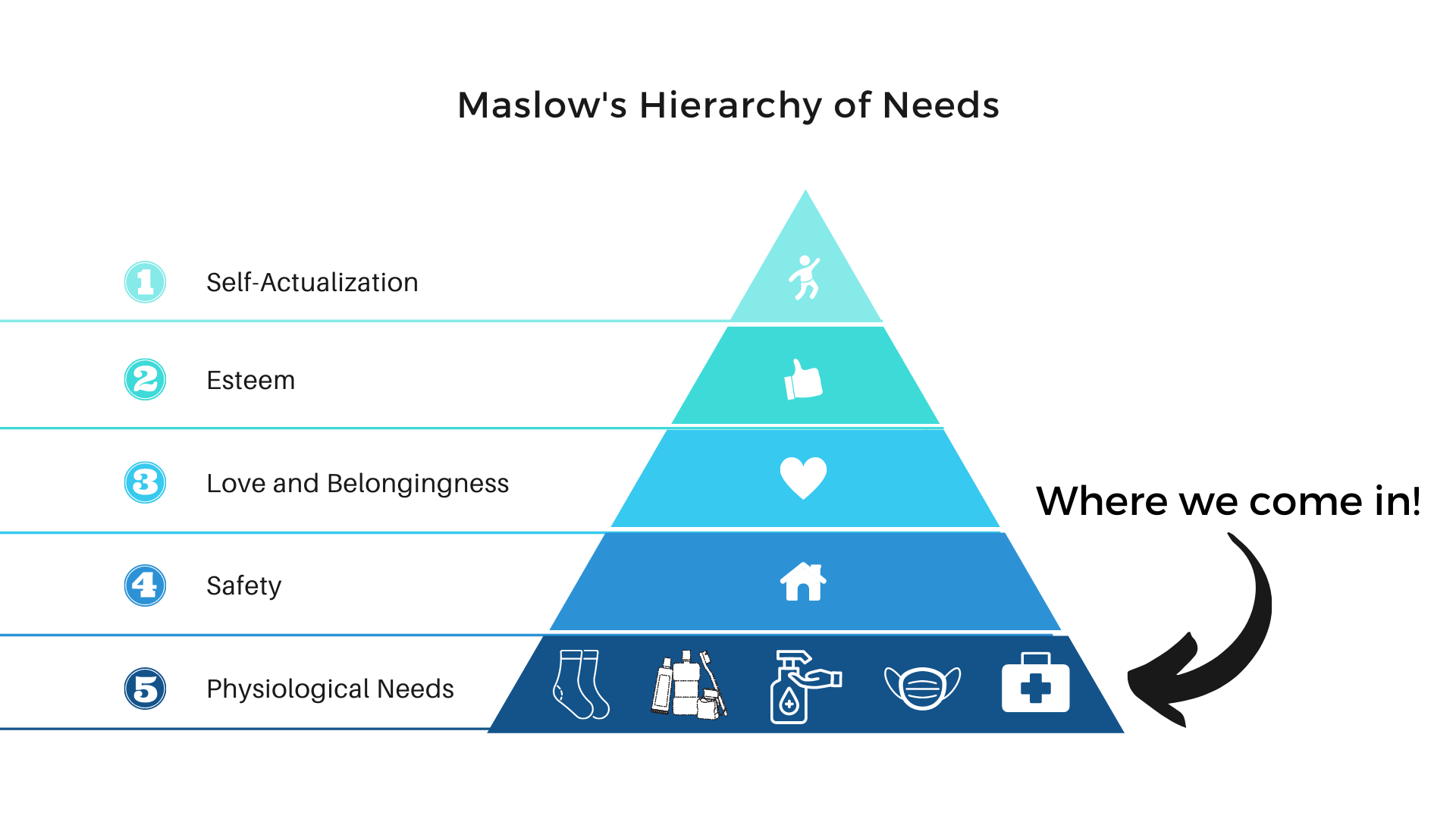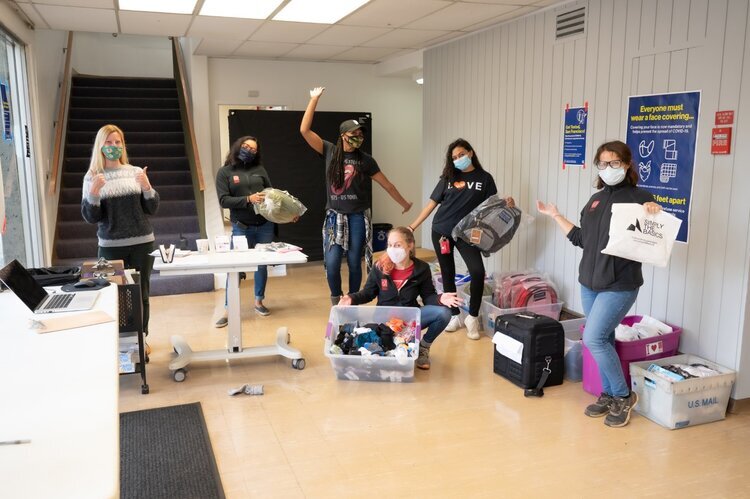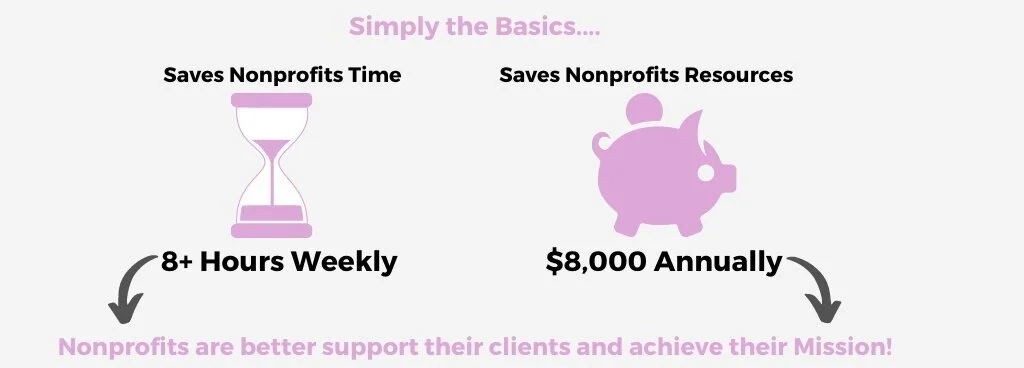Helpful Information on Impact
SIMPLY THE BASICS IMPROVES AND SUSTAINS THE HEALTH AND WELLNESS FOR PEOPLE EXPERIENCING HOMELESSNESS OR AT RISK OF HOMELESSNESS.
Many people experiencing homelessness suffer from preventable health conditions which could be avoided with regular access to proper hygiene and other basic needs but this issue is not just confined to the streets.
A horrific fact is that government support (think Food Stamps, etc) often does not cover menstrual hygiene products, toilet paper, soap, toothbrushes and toothpaste, shampoo, lotion, and many more items we use every day to avoid disease, remain clean, and feel dignified. This ultimately forces people experiencing poverty to choice between necessities and often forego basic needs so as to make ends meet. In a 2016 national study…
34%
of people reported that their health made it difficult for them to keep a job or to handle daily living activities.
67%
of people experiencing homelessness reported one or more preventable health conditions.
Proper hygiene and health are intimately interwoven, and poor hygiene is an inevitable result of homelessness. As compared with people who have homes, homeless persons are more likely to have dermatological problems, functional limitation, seizures, obstructive pulmonary disease, foot pain, and decayed teeth. Additionally, people who spend most of their time outside are at high risk for immersion foot, cuts leading to infection, and hypothermia during the cold and rainy periods. The risk of death is increased eightfold in people who experience these conditions.
For most people, personal hygiene is simply a matter of walking into their bathroom and engaging in "washing up" and getting clean. For people who live on the streets, maintaining proper hygiene and a sense of dignity is a time-consuming and dangerous endeavor.
Cleaning oneself can remind people of the appearance they once maintained before a life on the streets. Re-establishing a hygiene routine is key to recovering a sense of self.
SIMPLY THE BASICS SAVES NONPROFIT PARTNERS TIME AND RESOURCES SO THAT THEY CAN BETTER SUPPORT THEIR CLIENTS AND ACHIEVE THEIR MISSION.
Many nonprofits have positive missions of assisting in housing, mental health, substance abuse, and domestic violence prevention; however they are limited in their time and resources due to their need to fulfill basic resources. Simply the Basics is making a greater impact on homeless programs as a whole by solving a great operational challenge, allowing them to focus on client needs.
In 2016, Simply the Basics conducted a survey of over 100 nonprofit organizations serving the homeless and low-income individuals. It was through this survey that we learned that the majority of nonprofits do not have a staff person responsible for managing in-kind (physical) donations.
On average, staff spends roughly 40 hours a month managing donations,
including sorting and re-distributing donations that are not needed or have space for at that time. 100% of the homeless programs surveyed said that they could achieve more program goals if they weren’t so consumed with securing basic needs for their clients.
We solve this operational challenge by providing nonprofits with their client’s basic needs, eliminate waste by picking up unneeded donations they receive, and redistributing the items to programs based on their needs and storage. Through our support, nonprofits are given back an entire day every week to turn their focus back to clients and program goals.
Partnerships with Nonprofits
We have developed Partnerships with over 185 nonprofit organizations across the globe to save their staff time and resources. In our recent impact report surveying partners, we found that staff has been saved over 8 hours every week, turning that time to focusing on direct client needs and their own program goals.
Through partnerships with nonprofits, we allow the organizations to tell us what they need most so they can focus on their programs and clients. By integrating our services with existing organizations, rather than duplicating programs, we are able to more effectively end homelessness and serve the community.




